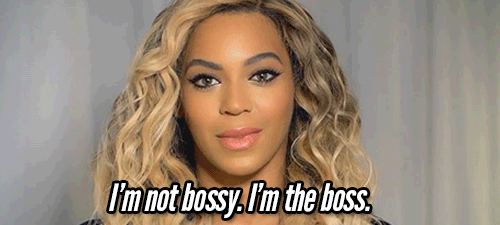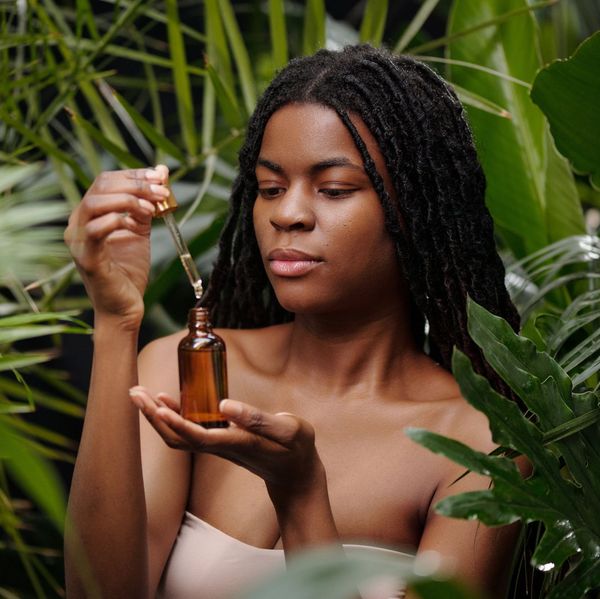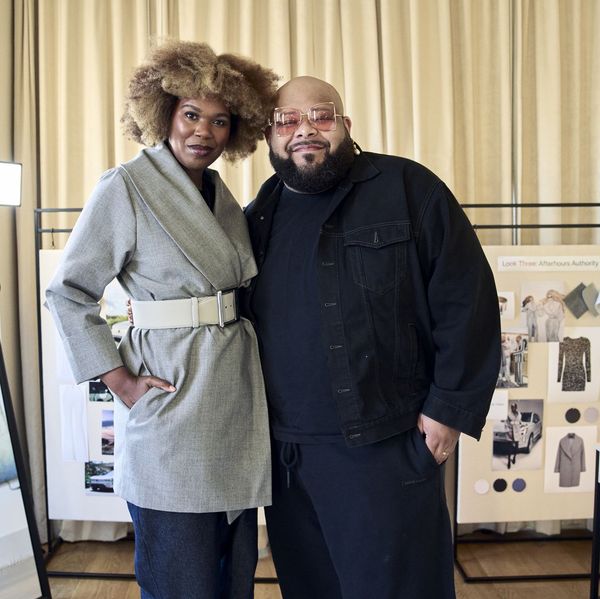
I received my first management position at the age of 22. I thought I had it all together. I just graduated from undergrad, had my own place, car, money, and now I was the boss at work. But I sucked as a manager. I thought I was prepared to manage others because I had gained plenty of leadership skills while I was apart of various organizations in college. Unfortunately, being president or a leader in a campus organization is totally different from being a boss for a company, especially when the people that you lead are older than you. The skill of management is something that is deep-rooted in some, and developed over time by others. While I know I was born to lead, I can look back now and see that there were so many things that I should have and could have done better.
Fast forward to a few years later, I have gained more experiences as a manager, and I have even received a few promotions along the way (so I guess I didn't suck that bad). Nonetheless, I have taken my good, bad, and very ugly experiences in management as a learning experience and as a challenge to become even better.
From my years in management, I have learned that doing the work can be easy, but learning how to manage, develop, and motivate people is not always a piece of cake.
Listed below are a few pieces of nontraditional advice from a modern, Millennial manager that's in her 20s. By reading this, you will learn some of the things that I wish someone would have told me, and you will learn how to not make the same mistakes that I made.
1. Always be prepared to answer the "How old are you?" question.
I can guarantee you that if you haven't received this question yet, you will definitely get it once you are in a management position. While some people consider it rude to ask someone their age, people still do it all the time. If someone asks you this, I recommend that you answer it with confidence and honesty. Don't lie about your age to seem more "mature or qualified." Brian Wong, a young entrepreneur, mentioned in an article that if you look at your age as a crutch or disadvantage it will become one. But if you look at it as a positive thing, it will be a positive thing.
2. Don't try to learn by example.
I think the biggest mistake that I made when I became a manager was trying to emulate how my boss led when she was the manager. When you are new to management, you will not find a lesson on managing people that is unique to you. Completely clueless on what to do, I copied my boss' management style, and I expected to receive the same amount of success as a boss. Of course, this did not work. It wasn't until I analyzed myself to see what my likes, dislikes, skills, and values were that I became a better manager. I learned that people truly lead differently, and what worked for one manager may not work as well for you. If you are impressed with your boss' management style, ask him or her for advice and tips, but also see what works for you.
3. Adjust your management type.
There is not a cookie-cutter style in managing people (trust me, I know). Organizations are filled with diverse people with different backgrounds and personalities. How you reprimand or show praise to one person will not work for another. Studies show that different generations work differently, and being aware of this is important as a manager. In your company, you may be a Millennial, and may manage older people in other generations like Baby Boomers, Generation Xers, and older Millennials.
Studies show that Baby Boomers are known to choose work over personal life. They typically do not trust authority, but they can be open to change. They love receiving personal gratification, and at work they normally have a sense of entitlement. Generation Xers are considered the “slacker" generation. They naturally question authority figures and believe in the concept of work/life balance. They also tend to be more independent than other generation groups. Millennials are known to be very team-oriented, are easily bored, loves challenging work, and seeks gratification in their work.
As a young manager, you will supervise people in different generations so it is important to know what their work style is like, and how you can adapt your management style to be an effective leader.
4. Be confident and don't be afraid to delegate.
You have been given the opportunity to lead, and it wasn't given to you by mistake. When I first became a manager, I wasn't only the youngest manager in my office, but all of my subordinates were at least 10-15 years older than me (and some even had more years of work experience). I would be lying if I told you I wasn't intimidated at first because I definitely was. I felt slightly inadequate and I was a little too nice. My timid and overly nice personality started to become second nature, so I didn't notice that I was a pushover. If you are feeling like you may be a pushover, I would advise that you find more self-confidence, and believe in the power of your role and your responsibility to be a fearless leader. Also, do not be scared to delegate.
5. Good bosses know how to get the work done, and delegate when necessary.
Delegation was also a skill that I didn't have when I first became a boss, but I quickly learned my lesson. I remember when I first started out in management, I thought it was my responsibility to literally do everything since ultimately I was responsible for everybody and each project. It wasn't until I realized that I wasn't getting any sleep, was skipping out on lunch, and saw my assistant pinning away on Pinterest during work that I knew a change was needed. I realized that my lack of delegation was not only exhausting and hurting me, but it was also hurting my employee. Failing to delegate prevents employees from learning and stifles their professional growth. It doesn't matter how old an employee is, they can still professionally develop, and it is your responsibility to equip them with the right tools to do so.
6. Know when to ask for help.
When I realized that I was failing as a manager, I reached out to other managers, and looked up self-help articles online. I also talked with my boss and discussed my concerns. I wasn't afraid or ashamed to admit that I wasn't doing a good job, and neither should you. The advice that I got from other people was extremely helpful, and it showed me things about myself that I didn't notice.
7. Ask your team for feedback.
A good boss or leader is open to criticism, feedback, and finds both necessary to grow. As a boss, it's okay to be vulnerable and seek advice from your employees. Whenever I have one-on-ones, I always ask my employees if there is anything that I could do better, or if they need anything from me to be successful. This is a question that not only helps me out and teaches me to be better, but it shows your employees that you are open-minded and value their opinion. I've learned that asking this question is favorable among my older employees because it gives them a chance to be heard.
If you are a young boss, what other tips do you have when leading older generations? Drop a comment below and share the knowledge!
Featured image by Getty Images
This Is How To Keep 'Holiday Season Stress' From Infecting Your Relationship
Hmph. Maybe it’s just me, but it seems like there is something really weird happening in the fall season air (because winter doesn’t officially begin until December 21) that cuddle season is in full swing while break-up season is as well. In fact, did you know that break-ups are so popular during the holiday season that December 11 is deemed Break-Up Day?
The reasons why relationships shift around this time vary; however, I did both roll my eyes and chuckle when I read that a very popular one is because it’s an easy way to get out of getting one’s significant other a Christmas present. SMDH.
Anyway, I personally think that the less shallow folks out here may contemplate calling things “quits” or they at least distance themselves a bit from their partner (and what I’m referring to is serious relationships) due to all of the stress and strain that oftentimes comes with the holidays whether it be financial, familial, due to their tight schedules or something else.
Listen, I would hate for you and your man to miss the fun and happiness of experiencing this time of year, all because you are so overwhelmed or irritated that you can’t really enjoy it. That’s why I have a few practical tips for how to avoid allowing the typical holiday season stress from INFECTING your relationship.
Manage Your Expectations
 Giphy
GiphyUnmanaged expectations. If there is a main reason why the holiday season tends to be so stress-filled for so many people, I’d bet good money that this is the cause. And when you’re in a long-term relationship, expectations can manifest themselves in all sorts of cryptic and/or unexpected ways. You might have relatives who assume that you are going to be with them for Thanksgiving or Christmas when you have other plans in mind. You might be thinking that you are going to spend one amount for presents while your man is thinking something totally different. When it comes to scheduling, your signals may be crossed.
And you know what? To all of these scenarios, this is where clear and consistent communication come in. Don’t assume anything. Don’t dictate anything either. From now until New Year’s, mutually decide to check in once a week, just to make sure that you are both on the same page as it relates to the holidays and what you both are thinking will come along with it. The less blindsided you both feel, the less stressed out you will be. Trust me on this.
Set (and Keep) a Budget
 Giphy
GiphyOkay, so I read that last year, 36 percent of Americans incurred some type of holiday-related debt. Hmph. Last year, there was still some sense of normalcy in this country, chile, so I can only imagine what finances are gonna look like over the next several weeks. That said, since I don’t know a lot of people who don’t find being broke stressful, make sure that you and your bae set a budget and then stick to it this year — no ifs, ands or buts.
Because really, y’all — it doesn’t make sense to deplete savings and/or max out credit cards for a few days of giggles only to be damn near losing your mind because you don’t know how to make ends meet come Dr. Martin Luther King, Jr. Day.
And by the way, this tip doesn’t just speak to things like food and gifts; I also mean travel. If it doesn’t make a ton of sense (or cents) to be all over the place this year — DON’T BE.
Keep Matthew 5:37 at the Forefront
 Giphy
GiphyIf off the top of your head, you don’t know what Matthew 5:37 says, no worries, here ya go: “But let your ‘Yes’ be ‘Yes,’ and your ‘No,’ ‘No.’ For whatever is more than these is from the evil one.” That verse right there? Oh, it’s a boundaries lifesaver! I say that because do you see “maybe” or “I’ll think about it” in there? Nope. LOL. It says that you should tell people “yes” or “no” and leave it at that — and that complements Anne Lamott’s quote, “’No’ is a complete sentence” impeccably well. Yeah, you’ve got to remember that anything beyond a yes or no to a request is privileged information; you don’t owe anyone details or an explanation.
Besides, if you are really honest with yourself, when someone asks you something and you give a “Umm, let me think about it” kind of reply, more times than not, you already know what your answer is going to be — so why not let you both off of the hook? Give your response. Commit to that. And let everyone (including yourself) get on with their lives and schedules.
I promise you that when it comes to those holiday parties, you are pissing more folks off by not RSVP’ing or doing so and not showing up than just saying, “Thank you but not this year” off the rip.
Remember That Your Personal Space Is Privilege Not a Right
 Giphy
GiphyA friend of mine recently bought a new house and invited me over to come see it. He’s a single man with no children, so as I was taking in all of the space that he had, especially as I walked through his finished basement, I joked about relatives coming to live with him. “Hell no” and “absolutely not” were pretty much his immediate responses as he went on to say that some folks even had the nerve to be offended when he told them that he had no intentions on taking DNA in.
Ain’t it wild how people think that your stuff is their right? And yes, that brings me to my next point. Your home is your sanctuary space. If you want to host folks this year — cool. If not, ALSO COOL. Please don’t let folks (family included) guilt you into how they want you to act or even into what they would do if the shoe was on the other foot. You are not them — and as one of my favorite quotes states, “If two people were exactly alike, one of them would be unnecessary.” (A man by the name Larry Dixon said that.)
Hell, my friends? They know that I am good for sending them random things that they need or even want all throughout the year. Coming over to hang out at my pace, though. Uh-uh. Chalk it up to being a card-carrying member of the ambivert club yet I like keeping my living space personal — and I sleep like a baby, each and every night, for feeling that way.
Always remember that your space, your time, your resources, your energy and shoot, yourself period (including your relationship), are all things that are your own. You get to choose how, when and why you want to share them. The holiday season is certainly no exception.
Cultivate Some “You Two Only” Traditions
 Giphy
GiphyIt’s not uncommon for some couples to hit me up after the holiday season to “detox.” Sometimes it’s due to the financial drama (and sometimes trauma) that they experienced. Sometimes it’s because they allowed their relatives (especially in-laws) to get more into their personal business than they should’ve. More than anything, though, it tends to be because they didn’t get enough quality time together and so ended up feeling “disconnected.”
Please don’t let that happen. Listen, I’m not even a holidays kind of woman and yet, I will absolutely sit myself down with some hot chocolate and chocolate chip cookies to enjoy a Hallmark holiday film or two. Aside from the fact that most of them are lighthearted and sweet, I also like that they usually focus on couples loving on each other amidst all of the holiday beauty and ambiance — which is something that all couples should set aside some time to do.
Maybe it’s a vacation. Maybe it’s a staycation. Or maybe it’s my personal favorite, A SEXCATION. Whether it’s for a few days, the weekend or even overnight — don’t you let the holidays go by without setting aside time for you and your man to celebrate one another. Don’t you dare (check out “Are You Ready To Have Some Very Merry 'Christmas Sex'?”).
GET. SOME. REST.
 Giphy
GiphyI once read that 8 out of 10 people get stressed out over the holidays and 3 out of 10 lose sleep during to it — and when you’re stress-filled and sleep-deprived, that can absolutely lead to hypersensitivity, making mountains out of molehills and even not being in the mood for sex.
Your relationship can’t afford to go through any of this, so definitely make sure to prioritize rest. I don’t care how unrealistic it might seem during this time, sleep should never be seen as a luxury; it will always and forever be a great necessity.
That said, try to get no less than six hours of shut-eye in (check out “6 Fascinating Ways Sex And Sleep Definitely Go Hand In Hand”) and even ask your bae to take a nap with you sometimes (check out “Wanna Have Some Next-Level Sex? Take A Nap, Sis.”). Not only will sleep help to restore your mind, body and spirit but, when it’s with your partner, it’s an act of intimacy that can make you both feel super connected, even in the midst of what might feel like chaos.
___
Holiday season stress is real. Still, never give it the permission or power to throw your relationship off. Put you and your man first and let the holidays be what they are gonna be, chile.
Let’s make things inbox official! Sign up for the xoNecole newsletter for love, wellness, career, and exclusive content delivered straight to your inbox.
Featured image by Shutterstock
This Experience Curator Details How To Host Guests For The Holidays
In many cultures, going to grandma's house for the holidays has always been the thing to do. But as we get older, things change. We move to new cities, start our own families, and our grandparents may no longer be around, so our homes may now be the holiday destination for extended family.
However, playing host can be a hassle, especially during the holidays when your home becomes your family and friends’ home for a short period. And if this is your first year hosting the holidays at your place, you can be in for a rude awakening if you don’t make the necessary preparations beforehand.
We spoke to NYC-based experience curator and owner of POP! by Yaz, Yasmin “Yaz” Quiles, to help guide first-timers. According to Yasmin, an experience curator is “someone who not only focuses on an actual event but the entire experience, and that can mean anything from the first point of contact, things from an invitation, a website, all the way to the end and after effects.”
If you are hosting the holidays in your home, it is important to touch on all of these points so that your guests can have an experience to remember. Here are the steps to successfully host family and friends for the holidays.
1.Plan and Organize:
Before people start showing up to your house, you must plan out what you need and for how many people. It's also a great time to be creative. “The first part is the dream part because it’s the fun part. What do I envision my event to look like? What do I want my people to feel when they come to my space? Ask all of the questions for the first point of contact,” says Yasmin. “What kind of invitation [am I using?] Who am I inviting? What kind of music are we listening to? The food. So, you start thinking about what the vision is, and then after the dreaming, you organize your thoughts.”
That includes putting together a budget. “See what you have access to, what you need help with, and what you may need to outsource,” she advises. Meaning, this is the time to decide if you and your family will be cooking or if everyone will chip in to get dinner catered.
2.Repurpose Your Items:

Photo courtesy of Yasmin Quiles
As you continue to plan and organize, it's important to take stock of what you already have at home. This can also help you stay within budget. If you have a limited budget then start thinking about how to utilize what you already have in a innovative way.
“I also like to start with inventory. What [are] items in your house that you can use? That way you can determine what it is that you have to get,” she suggests. “I feel like a lot of people always put together a list and it's always 'buy, buy, buy, buy,' versus ‘oh, wait a minute, I actually do have some things that I can utilize and I can just use it in a different way.’”
For example, “Utilizing a console as a small bar area or creating fake fireplaces. I think there are ways to use items in your space so that you don’t have to continue to fill it up with new things.”
3.Make Your Guests Feel Like They Are at Home:
Ever heard the saying, "mi casa es su casa?" You want your space to make guests feel like a home away from home and having a cozy place to sleep plays a major part in that. Be realistic about how many people you can fit comfortably in your home. “Figure out how much space you have in your house and how many people you can truly accommodate,” she says. “What that means is even if you have a two-bedroom apartment, what are some creative ways you can create some space for them? Is it an air mattress or is it getting a hotel that is close to you; Airbnb's?”
You also want to provide your guests with the necessary accouterments and the gift of convenience. If you have certain rituals in your home, you want to make sure your guests can also participate in them. “What I love to do with my guests, I always love to make them feel like they're at home even when they are not, so I like to replicate the things I love in a hotel room. In our house we take off our shoes so we always have disposable slippers here that people can slide on or brand new socks in a basket,” she explains. “That way they can feel immediately comfortable the moment they pass the threshold in your house."
"And in the bathroom or if there’s a powder room, I like to put together a little welcome basket and it can be something as simple as here’s your towel, here’s your washcloth, all the little toiletries you may need," she adds. "I give them their own little stash, that way they don’t feel like they’re burdening me by asking, 'oh, do you have q-tips' or whatever it is. It’s all already set up there for them and it makes them feel so welcome and thought of.”
4.Food and Entertainment:

Photo courtesy of Yasmin Quiles
Along with welcome baskets, the Afro-Latina entrepreneur also enjoys putting lists together with a few of her recommendations. Think, welcome lists you receive at hotels and Airbnb. “I’ll put together a short list of my favorite restaurants, my favorite channels or shows to watch that way they can be entertained while I’m doing other things,” she says.
The holidays involve a lot of cooking and so going out to eat may not be an option. But neither is eating mac and cheese, collard greens, and ham all day, every day. So, it's best to provide options for your guests. “When people go to other people’s homes, they really want the house experience so eating out is great, it’s fine, but I think it really makes people happy when immediately there at home at your house," explains Yasmin.
"What I like to do is immediately have an assortment of snacks available and that means everything from the folks that are on a diet to folks who want to indulge and have a little bit of everything. That way we have a good selection. And [I like to have] things that can be left out for a couple of days as well so I’m thinking pre-packaged items that way [they can] 'grab and go.'”
5.Activities:
When having guests stay over for a few days, you should want to do more than just stay in and look at each other the whole time. Similarly to the way Yasmin advises providing a list of recommendations for eating out and indoor entertainment for guests, she suggests providing guests with a list of favorite stores or favorite markets with recommendations of what to buy.
This can also be a great time to show your guests where you live by going on walks or a scenic drive. "A lot of times these holiday celebrations happen when we are in the midst of planning and doing things and doing all the last-minute errands. Another thing I like to do is photo albums, people love photo albums.”
Yasmin recommends having a physical photo album that you and your guests can look through or a digital frame such as Aura Frames that holds photos online that you can continue to add to.
6.Music:
What’s left is providing the ambiance. One of the many ways that people do this is by having a playlist. Creating a playlist is fun but can also be time-consuming. Not only do you have to add your auntie's favorite Christmas song to the playlist but you may also want to take a trip down memory lane with your siblings and jam to a throwback from your childhood. Yasmin reveals a solution, which she refers to as an “elevated” experience.
“You can hire a DJ. They can do a set on Twitch,” Yasmin says. “There’s a chatroom function so you can put it on your TV, so all the guests who are there can listen to the music live but if there are guests who can’t make it for whatever reason, they can tune in and participate via the chat.”
The experience curator also suggests having a quiet space for those who are more introverted or need a break from the loud music and crowd.
7.The Breakdown:
Whether you and your family decide to cook together or hire a caterer, cleaning up after a big event is always a buzz kill. Yasmin recommends outsourcing help as a way to enjoy yourself and not worry about the aftermath. “Clean up can be a big hassle. It is okay to get a cleaning team. It is okay to hire a bartender. It is okay to hire anybody who can make your job easier,” she assures.
“The point of these events really is to connect and I feel we get so caught up in the doing that we forget that and the party ends and we’re like, ‘Dang, I didn’t get to have a conversation with my best girlfriend who I haven’t seen in six months.’ Give yourself permission to outsource so that you can have a good time.”
For more information about Yasmin, you can visit her website at yazquiles.com and follow her on Instagram @popbyyaz.
Feature image courtesy of Yasmin Quiles
Originally published on December 13, 2022










